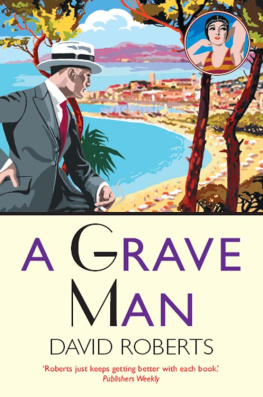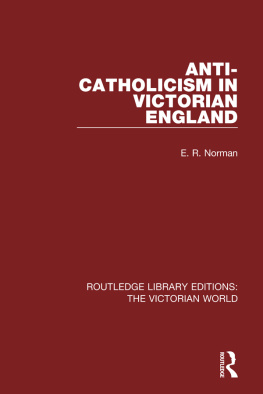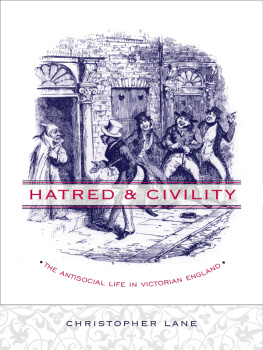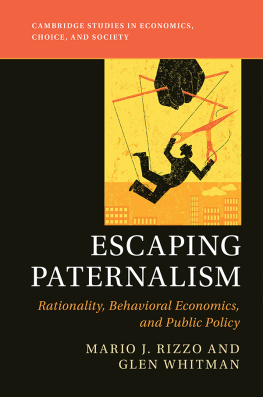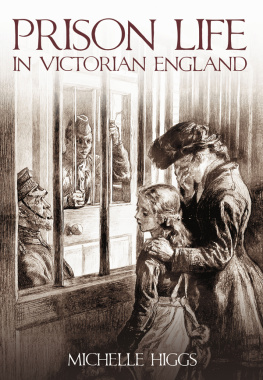ROUTLEDGE LIBRARY EDITIONS: THE VICTORIAN WORLD
Volume 41
PATERNALISM IN EARLY VICTORIAN ENGLAND
PATERNALISM IN EARLY VICTORIAN ENGLAND
DAVID ROBERTS
First published in 1979 by Croom Helm Ltd
This edition first published in 2016
by Routledge
2 Park Square, Milton Park, Abingdon, Oxon OX14 4RN
and by Routledge
711 Third Avenue, New York, NY 10017
Routledge is an imprint of the Taylor & Francis Group, an informa business
1979 David Roberts
All rights reserved. No part of this book may be reprinted or reproduced or utilised in any form or by any electronic, mechanical, or other means, now known or hereafter invented, including photocopying and recording, or in any information storage or retrieval system, without permission in writing from the publishers.
Trademark notice: Product or corporate names may be trademarks or registered trademarks, and are used only for identification and explanation without intent to infringe.
British Library Cataloguing in Publication Data
A catalogue record for this book is available from the British Library
ISBN: 978-1-138-66565-1 (Set)
ISBN: 978-1-315-61965-1 (Set) (ebk)
ISBN: 978-1-138-19472-4 (Volume 41) (hbk)
ISBN: 978-1-315-63869-0 (Volume 41) (ebk)
Publishers Note
The publisher has gone to great lengths to ensure the quality of this reprint but points out that some imperfections in the original copies may be apparent.
Disclaimer
The publisher has made every effort to trace copyright holders and would welcome correspondence from those they have been unable to trace.
Paternalism in Early Victorian England
David Roberts
First published in Great Britain by
Croom Helm Ltd, 1979
210 St Johns Road, London SW11
Roberts, David
Paternalism in early Victorian England.
(Croom Helm social history series).
1. EnglandSocial conditions19th century
2. Great BritainPolitics and government
19th century
3. Authority
I. Title
301.15 HN385
ISBN 0709900570
First published in the USA by
Rutgers University Press, 1979
New Brunswick, New Jersey
Copyright 1979 by Rutgers, The State University of New Jersey
All rights reserved
Printed and bound in the United States of America
To Helene
Contents
Many people have helped me in the writing of Paternalism in Early Victorian England. My brother, Clayton Roberts, of Ohio State University read an early draft of the manuscript, as did Perry Curtis of Brown University and Trygve Tholfsen of Columbia University. Their shrewd criticisms and helpful comments proved of great value in the writing of the final draft. David Spring of Johns Hopkins University and Anthony Brundage of California State Polytechnic University at Pomona read the chapters on the Patriarchy of Sussex and Land and Its Duties and offered useful suggestions. James Winter of the University of British Columbia read the manuscript with great attentiveness as did Shirley Kifer and Frank Fetter of Hanover, New Hampshire.
R. A. Lewis of the University of Wales at Bangor gave the manuscript a most thorough and conscientious reading. His generosity in time and industry was matched by his remarkable erudition about the smallest byways and most remote corners of Victorian England. E. P. Thompson was also kind enough to read the introduction and make helpful suggestions.
To all the above scholars I extend my warmest thanks.
Grateful acknowledgments should also go to the John Simon Guggenheim Foundation, the Social Science Research Council, and Dartmouth College for their generous fellowships and grants.
I would also like to thank the Victorian Periodicals Review for permission to use materials published in their journal.
And finally I would like to give special thanks to my wife, Helene, for the work she did on the manuscript and for the initial suggestion that the subject of paternalism was worth a book.
I n early Victorian England, no social outlook had deeper roots and wider appeal than that which twentieth-century historians call paternalism. It was an outlook held by landowners, captains of industry, clergymen, members of Parliament, justices of the peace, civil servants, newspaper editors, novelists, poets, and university dons. It was even held, as habits of deference, by agricultural laborers, operatives, and the worthy poor. It informed social attitudes at all levels of society and expressed itself in countless ways. It was an outlook as diffuse and varied as it was widespread and popular.
It had, at the time, no specific name. The early Victorians, to be sure, spoke of patriarchal principles or a paternal government but never of paternalism. Their failure to do so is not significant. Medieval Englishmen never spoke of a Medieval English Constitution, but numerous historians have attested to its reality. Early Victorian paternalism, like the Medieval English Constitution, did exist, though nameless in its day.
But it did not exist as a set of definite, logical, and clearly defined axioms. It could boast no laws or theories, as could political economy, nor did it even have the coherence of Jeremy Benthams theory of utility or John Lockes theory of the social contract. It formed instead a set of varying attitudes and beliefsattitudes and beliefs that could form different combinations in the minds of different people, often in a not too coherent form.
will analyze their impact on politics and legislation.
Since, in this long tour, paternalists of every kind and persuasion will appear, it is necessary at the outset to define the main tenets of paternalism, to construct, as it were, a model of paternalism.
A Model of Paternalism
In any definition of the paternalist social outlook three aspects must be considered: paternalisms basic assumption about the framework of society; its doctrines concerning the duties of the wealthy, privileged, and powerful; and the many and various attitudes which, while not essential to the paternalist outlook, are often associated with it.
Almost all Victorian paternalists held four basic assumptions about society: it should be authoritarian, hierarchic, organic, and pluralistic.
That it should be authoritarian followed naturally from the very word paternal, which means fatherhood, and which is nearly synonymous with sovereignty. Fathers command and exact obedience. So do kings, judges, lords lieutenant, magistrates, bishops, archdeacons, squires, parsons, constables, and workhouse governors; their authority is of a paternal nature. That paternal authority, however, was not absolute in all spheres. The early Victorians were proud of their English liberties, of juries, open vestries, habeas corpus, toleration acts, and Parliaments. English paternalism, involving an authoritarianism that was tempered by common law and ancient liberties, was different from Austrian or Russian paternalism, and any definition of it must therefore be cut from a different cloth. But, that fact acknowledged, it could still be, in certain areas, severely, even cruelly, authoritarian. The typical paternalist believed in capital punishment, whipping, severe game laws, summary justice for delinquents, strict laws defining the duties of servants, and the imprisonment of seditious writers. He never doubted the sacred nature of paternal authority, whether exercised by magistrates at quarter sessions, by landlords on their estates, or by archdeacons presiding over ecclesiastical courts.







